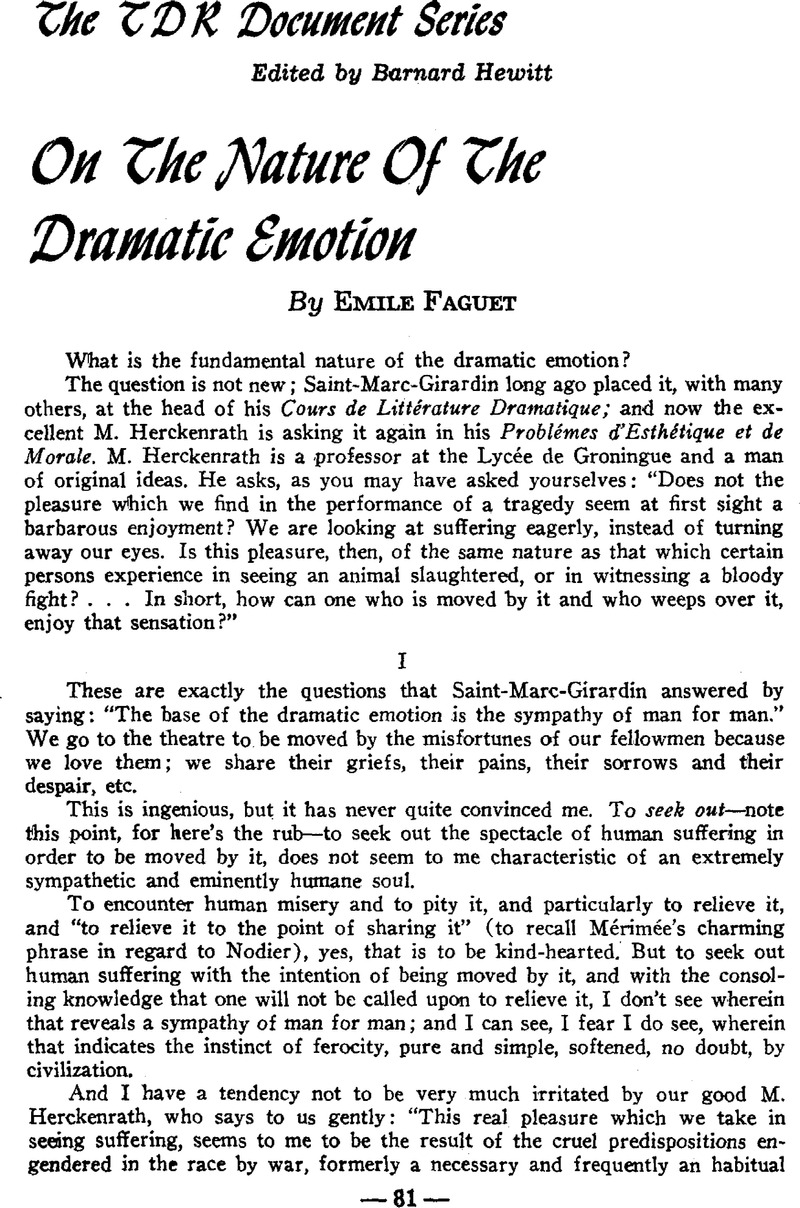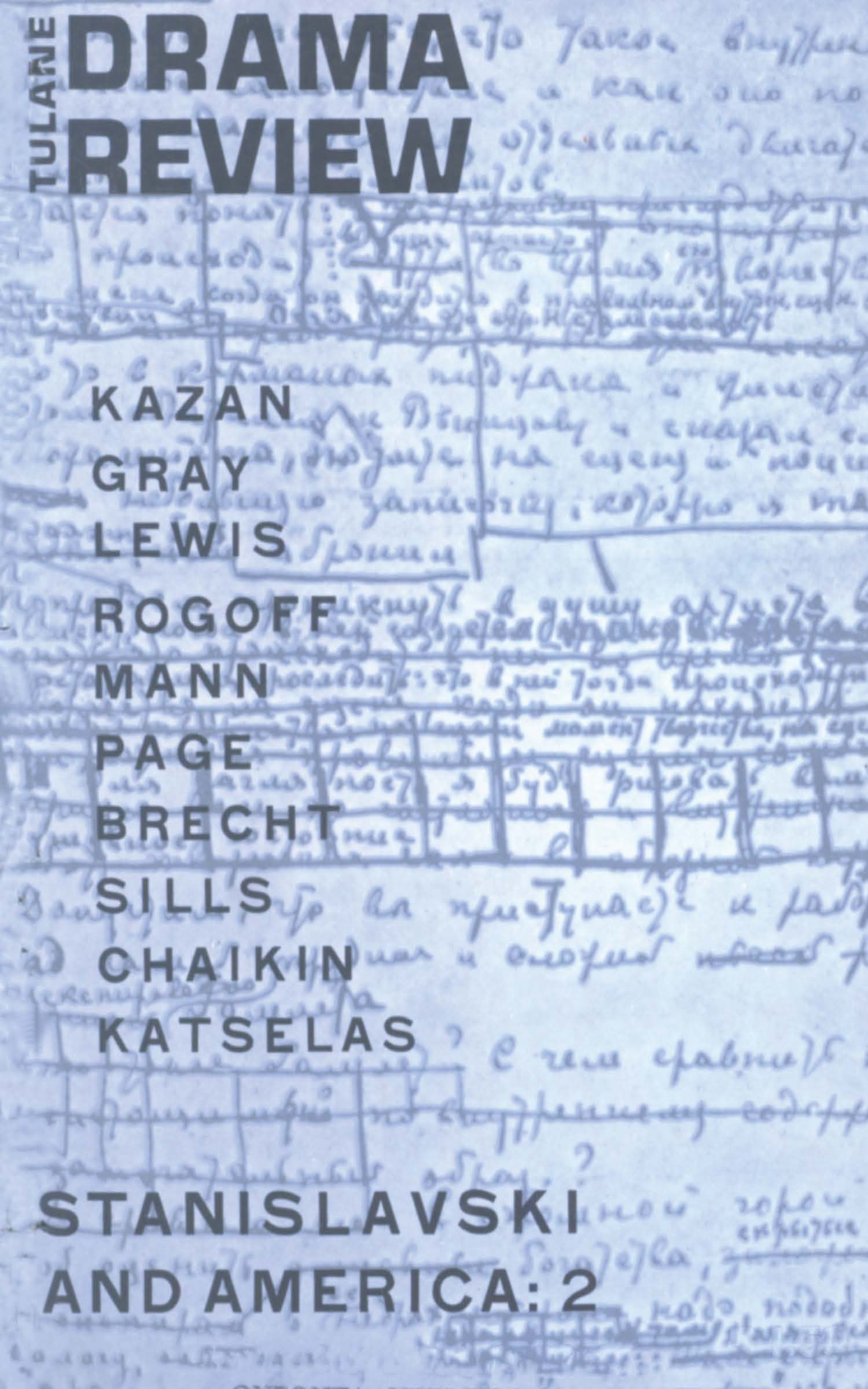No CrossRef data available.
Article contents
On the Nature of the Dramatic Emotion
Published online by Cambridge University Press: 03 February 2022
Abstract

- Type
- The TDR Document Series
- Information
- Copyright
- Copyright © 1958 The Tulane Drama Review
References
Notes
Emile Faguet (1847-1916) was one of the most brilliant and prolific of French critics. He was equally interested in politics and in philosophy, in history and in biography, in literature and in the drama. He published one of the most useful of recent histories of French literature; and he collected into five volumes, Propos de Theatre, selections from his weekly dramatic criticisms.
He had erudition even if he seems sometimes to fail in his mastery of fact. He was always suggestive, even if he was not always sound; and he made his readers think, even if he did not always succeed in persuading them to agree with his novel and individual views. He exhibited unfailingly a searching curiosity which led him into nooks and corners and recesses of his subject, often unexplored or unsuspected by earlier investigators.
His interest in the drama was second only to his interest in philosophy; and his philosophy was always available to sustain his dramatic criticism. He was like Aristotle and like Lessing in that his discussion of the drama was never academic but always solidly based on an intimate knowledge of the conditions of performance on the stage itself—a knowledge which was the direct result of many years of assiduous playgoing. To him as to Aristotle and Lessing, a play was ever to be judged from its performance and not merely from its perusal. He strove always to apply the tests of the actual theatre, while never neglecting the more leisurely analysis possible only in the library.
His volume entitled Drame Ancien, Drame Modern, published in 1898, is a conscientious effort to compare and to contrast the method of Aeschylus, Sophocles and Euripides with the method of Corneille, Racine and Voltaire. To this, by way of preface, he prefixed this inquiry into the nature of the delight we take in the acted drama.
The little volume of philosophic essays which was the exciting cause of Faguet’s paper, Problemes d'esthetique et de Morale by Professor C. R. C. Herckenrath, (Paris, Felix Alcan, 1895, 164 pp.) contains only half a dozen suggestive inquiries. The most important of these is an analysis of our feeling for the beautiful and the sublime. The paper entitled the ‘Problem ofTragedy’ is that from which Faguet has quoted The little volume of philosophic essays which was the exciting cause of Faguet's paper, Problemes d’esthetique et de Morale by Professor C. R. C. Herckenrath, (Paris, Felix Alcan, 1895, 164 pp.) contains only half a dozen suggestive inquiries. The most important of these is an analysis of our feeling for the beautiful and the sublime. The paper entitled the ‘Problem ofTragedy’ is that from which Faguet has quoted.




